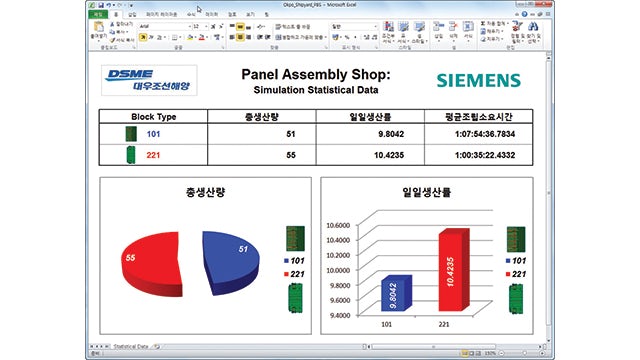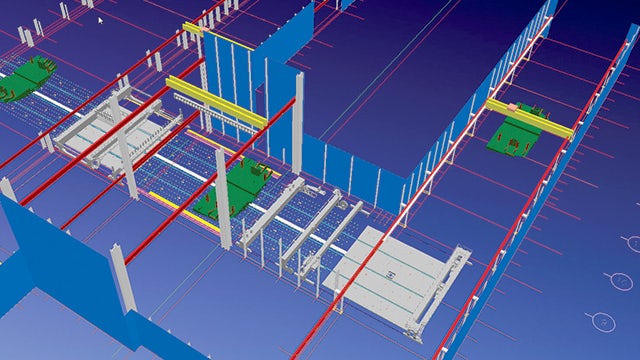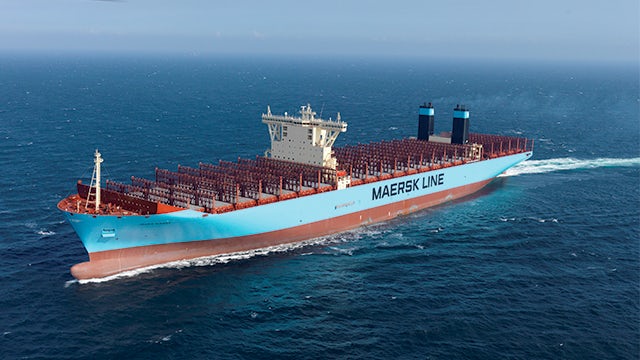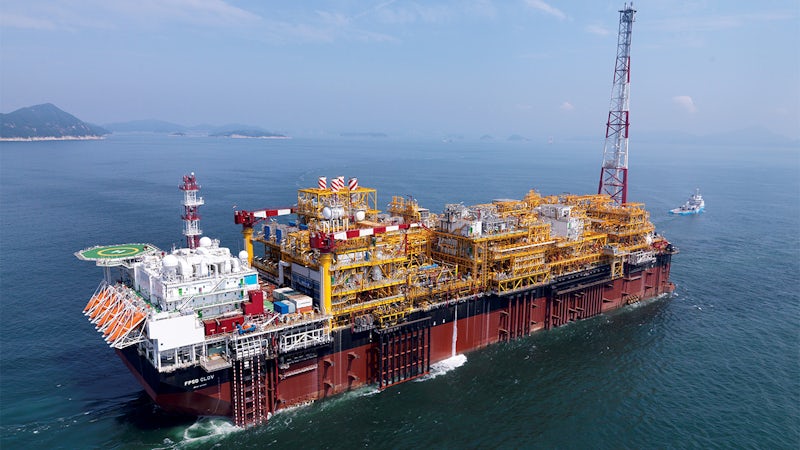Building the digital shipyard
Daewoo Shipbuilding significantly increases design productivity using cutting-edge technology from Siemens Digital Industries Software
Daewoo Shipbuilding and Marine Engineering
Daewoo Shipbuilding and Marine Engineering is a world leader in building all types of ships, marine plants, drilling platforms, storage and offloading facilities, submarines and destroyers. The company produces high-quality ships by drawing upon its vast IT expertise, shipbuilding technologies, fixed platform construction capacities and large-scale project management know-how.
http://www.dsme.co.kr/- Headquarters:
- Seoul
- Products:
- JT Open, NX, PLM Components, Teamcenter, PLM Vis, Tecnomatix
- Industry Sector:
- Marine
We rely on Siemen’s outstanding technology based on its vast experience and know-how accumulated in shipbuilding and marine engineering.
Daewoo Shipbuilding
Enhancing competitiveness through PLM
Daewoo Shipbuilding and Marine Engineering (Daewoo Shipbuilding), one of the world’s largest shipbuilders, is using product lifecycle management (PLM) solutions from Siemens Digital Industries Software to enhance its position in the highly competitive global marine marketplace. The company is investing in new technology to help maintain market share by enhancing its ability to react quickly to customer requirements.
Daewoo Shipbuilding assembles products at the world’s largest dockyard, occupying four million square meters, where the company builds oil tankers, container ships and passenger ships; naval ships such as submarines and destroyers; and marine plants, including fixed offshore oil and gas platforms. Major oil producers are becoming regular clients of Daewoo Shipbuilding because the company provides superior technology and on-time delivery.
To help fulfill company objectives, Daewoo Shipbuilding recently signed a three-year memorandum of understanding with Siemens Digital Industries Software to help develop a digital production support system. The company is focused on building a “digital shipyard” by establishing an innovative production support system based on Siemens Digital Industries Software technology and the company’s own experience. “Daewoo Shipbuilding and Marine Engineering has achieved true ‘convergence’ through cooperation with another global company, Siemens Digital Industries Software,” says Seo Heung Won, leader of the information technology (IT) team at Daewoo Shipbuilding. “We rely on Siemen’s outstanding technology based on their vast experience and know-how accumulated in shipbuilding and marine engineering.”

Digital deck plans
Daewoo Shipbuilding has built a smart system optimized for a mobile environment, a smart 3D deck plan and a digital construction system (DCS) for production information management. Moreover, the company provides its engineers with an easily accessible single source of information. It accomplished this by establishing an efficient digital infrastructure through the introduction of NX™ software for computer-aided design (CAD) and Tecnomatix® software for a comprehensive portfolio of digital manufacturing solutions. (Tecnomatix is built upon the open product lifecycle management (PLM) foundation of the Teamcenter® portfolio).
The company also selected the JT™ data format for lightweight modeling used in working with the extremely complex CAD models required for constructing large ships virtually. Using JT, engineers can readily change the 3D model data with almost any CAD system, including AVEVA Marine.
Daewoo Shipbuilding is enabling managers and non-engineers to visualize and collaborate on product data with the help of a viewer developed using the PLM Vis toolkit. Daewoo needed a company- and process-specific viewer with a highly discoverable and intuitive user experience so that it could be used productively without any training. PLM Vis, the software development toolkit based on the Siemens Digital Industries Software Teamcenter visualization product, allowed the Daewoo Shipbuilding team to quickly implement a viewer that simplifies planning and the development of electronic documents. The revised design/production business process is an essential element of realizing innovation, enabling engineers to quickly validate models (needed for production) as well as corroborate deck plan information and materials through linkages between 3D models with the deck plan, bills of materials (BOMs) and information from various other documents.
Establishing a totally digital construction environment brought about a significant change at Daewoo Shipbuilding. It’s not only helping the company improve efficiency, but is also helping it enhance its reputation in the marketplace. Among successes, the company has embraced the digital mockup (DMU) concept, reducing the need to build costly, time-consuming physical mock-ups. Producing a physical mock-up of a submarine can take as much as six months and costs from six to eight billion won.

Increasing productivity using Siemens Digital Industries Software
“The synergy we have achieved through the combined use of NX, Teamcenter, Tecnomatix and PLM Components has helped significantly increase productivity,” says Won. “This is allowing a first-class shipbuilding company to experience new changes, which enable us to demonstrate our competitiveness in the shipbuilding/ marine engineering business sector. It’s really remarkably synergetic to use NX for designing and Tecnomatix for manufacturing on the open single PLM platform of Teamcenter.”
Using digital mockups of a ship’s deck allows Daewoo Shipbuilding engineers to visualize the placement of compartments and equipment, and enables them to find and fix potential interferences during the early planning process. This has substantially improved engineers’ ability to reduce the time needed to inspect for interferences.
Using a standard plan which reflects all production limit conditions helps engineers eliminate issues associated with block locations or transporting components at the worksite, as much as four years in advance of actual production. As a result, the company can build more practical and reliable production plans.
“Since making the interference inspection system a standard operating procedure, Daewoo Engineering is building procedures to balance shop loads and prepare the foundation for a true digital shipyard production environment,” says Won. “Through the use of Siemens Digital Industries Software technology, we have eliminated production problems before they occur and have also maximized operational efficiency.”

